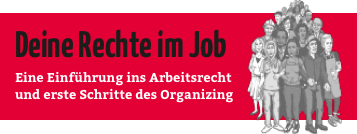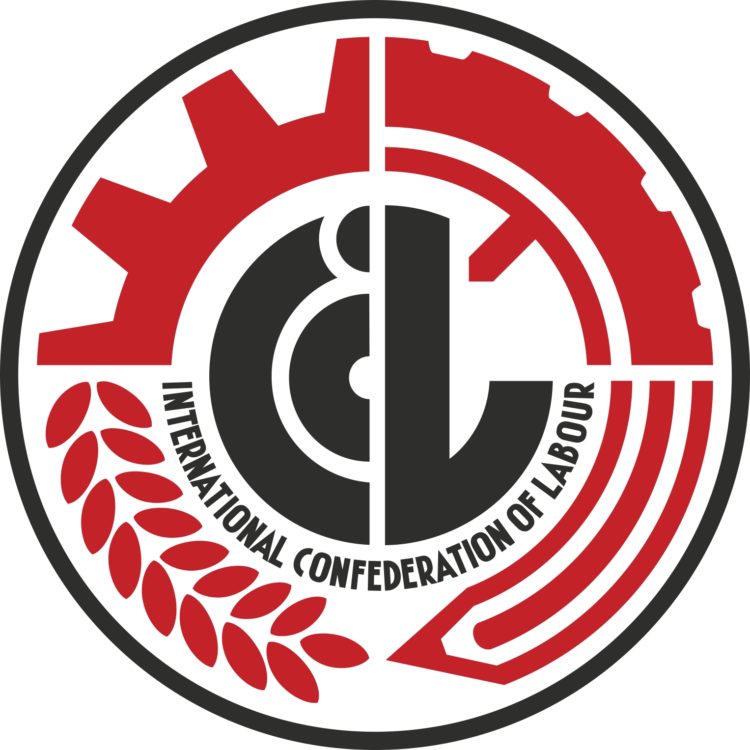The principles and foundations of our national trade union federation:
Principles and Foundations of the Work of the Free Workers' Union (FAU)
1. Principles and Goals
1.1. The Free Workers' Union (FAU) is a trade union federation. The members of the FAU work together to improve their working and living conditions. This is primarily achieved through labor struggles and workplace organizing, as well as cultural and educational work, solidarity, and mutual aid in everyday life. The FAU participates in alliances and social movements that pursue similar goals.
1.2. The FAU consists of independent local unions (syndicates) and their local and regional associations. All significant decisions are made in general assemblies and at delegate meetings. Functionaries and delegates are bound by instructions and serve merely as executive bodies. The FAU is connected globally with other radical trade unions.
1.3. We aim for the abolition of capitalism. Capitalism is based on the exploitation of workers by those who control the means of production. It can never be fully overcome through reforms of the capitalist system, but only through the establishment of a fundamentally different economic system based on solidarity and self-management.
1.4. We adhere to the ideas of anarcho-syndicalism. The anarcho-syndicalist wing of the labor movement has been fighting since its inception in the early 20th century for the emancipation of workers, against war and nationalism, for gender equality, and against religious dogmas. Today, the task is to revive, further develop, and strengthen the theory and practice of anarcho-syndicalism both in Germany and globally.
2. Union Philosophy
2.1. Trade unions are organizations of workers. Workers are all wage-dependent individuals. This includes those who must earn a living through their own labor, whether they are called workers or employees, as well as self-employed people without employees. But it also includes indirectly wage-dependent individuals who rely on the labor of others: pensioners, unemployed people, children, those performing unpaid labor, as well as students. As wage-dependent people, we must sell our labor in a labor market that imposes exploitative working conditions on us. As an anarcho-syndicalist union, we are not committed to the interests of a nation or state, but to the common interest of workers worldwide, to free ourselves from economic exploitation and social oppression.
2.2. The purpose of our work is to improve our living conditions. Our activities are focused on immediate, tangible results. This leads to ongoing processes of understanding and learning about our own strengths, as well as the possibilities for applying them under the given social conditions.
2.3. We aim to achieve the goals of our labor struggles by the most direct means possible. The ideal methods of labor struggle are those that exert immediate pressure on our opponents. The specific form of the actions taken is chosen by the workers involved and is decided anew for each confrontation.
2.4. As workers, we possess the inherent power to disrupt the smooth running of wage labor, or at least threaten to do so, in order to enforce specific demands. These abilities become tangible and effective in labor struggles through collective, organized action. Concrete experiences of collective power are crucial, as a radical union movement cannot exist without them.
2.5. Passing on the insights gained from these experiences is a key goal of anarcho-syndicalist education and cultural work. This should also be directed against any form of social discrimination. Homophobia and sexism, racism and anti-Semitism, nationalism and social stigmatization, just like capitalist exploitation, are part of a web of diverse relations of domination that are part of our lives. They also exist within the labor movement and other movements that consider themselves emancipatory. Liberating ourselves from such power structures is a task that begins with ourselves and in our immediate surroundings.
2.6. Solidarity is a weapon! Our solidarity work is rooted in mutual aid. Our solidarity extends to the struggles of trade unions we are connected with globally. We also support local labor struggles, where constructive collaboration with radical colleagues is possible across organizational boundaries. We support youth groups and initiatives that are close to our values. We seek exchange with other emancipatory and grassroots-democratic groups and individuals.
3. Critique of the Status Quo
3.1. We see capitalism, as the globally dominant economic system, as a central obstacle to social emancipation and individual self-determination. Capitalism is a system of exploitation of people by people. It inevitably creates a class divide between those who have no choice but to sell their labor and those who have control over the means of production and thus the profits we create. At the same time, capitalism is driven by competition for markets and profits, imposing a growth imperative that subjects all areas of life to capitalist law and exploits natural resources beyond ecologically sustainable limits. Capitalism is not a natural law, but merely a human-made relationship that can be abolished through collective action by the working class.
3.2. The bourgeois state guarantees and protects private property as the foundation of a capitalist order. Welfare state structures pretend to balance opposing economic interests. As a nation-state, it constructs a common interest among its citizens against the competing external interests of other nation-states and a set of imperatives to which citizens must subordinate themselves.
3.3. The FAU is not aligned with any political party and does not engage in parliamentary activity. In parliamentarism, it is only possible to elect representatives, not to determine their actions. The so-called representatives of the people are embedded in a network of economically powerful interest groups and the hierarchical structures of their parties. They are unlikely to oppose the imperatives of the capitalist economy and their own growing will to power as their influence increases.
3.4. In Germany, trade unions are conceived by legislation as a moderating force in capitalist labor relations. Unions are supposed to serve the interests of the capitalist structures, supporting the economic interests of the location and maintaining social peace. Other trade unions often reproduce this logic, viewing workers in one place as competitors to workers in other locations, both locally and globally. We do not accept this role attribution, nor the extensive legal restrictions on the freedom of action of trade unions.
3.5. We do not reject political reforms if they include real improvements to living conditions or strengthen our rights, as long as they do not contradict our goals. However, we reject reformism as an attitude that does not seek to fundamentally change the existing relations of exploitation and oppression, but instead seeks to stabilize them.














